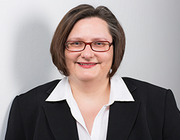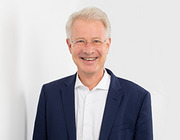Liberia is the winner when it comes to fighting corruption – Ukraine, the loser. That fact is made clear by the second part of the Internet series "Secrets of Transformation," the Deutsche Welle multimedia project that uses figures from the latest release of the Bertelsmann Stiftung's Transformation Index. As it examines the winners and losers of global transformation, the series gives people living in developing and newly industrialized countries the chance to talk about how they experience global change every day.
The winner: Liberia
Liberia's population is young, poor and full of optimism. Ten years after the bloody civil war with its more than 200,000 casualties, things are looking up once again. The country has made progress, above all, in its efforts to combat corruption. Pandora Hoges, a 25-year-old student who spent 10 years of her life at war, is hopeful and feels things are improving. Hoges believes that corruption among government authorities has decreased. In light of that, she is attempting to realize her dream and earn a bit of money by opening her own restaurant.
At the same time, there are Liberians who are continuing the fight against corruption. Frances Johnson-Allison is one of them. She is chairwoman of the country's Anti-Corruption Commission and she and her staff have successfully initiated a number of high-profile court cases against corrupt politicians and top public officials. Yet many people in the country remain skeptical, including journalist Rodney Sieh, who has repeatedly documented cases of bribery. Sieh believes you can only fight corruption effectively by watching very closely what those in powers are doing. His goal is to help his country make progress in this area, and he's willing to suffer the sometimes serious consequences of making sure that it happens.
Liberia's shining example, however, is already growing a bit duller. Deutsche Welle reporter Adrian Kriesch has been investigating the situation on site. According to Kriesch, Liberia’s government has managed to create institutions for fighting corruption. During his investigations, however, he has come to see that many of those institutions are actually powerless.
The loser: Ukraine
Things are not nearly as positive when it comes to anti-corruption efforts in Ukraine. Bribery – in politics, business and other areas of society – has been costing the country millions of euros for years. Even though journalists regularly document abuses, nothing changes, despite the fact that corruption is one of the greatest hurdles the country faces as it attempts to draw closer to Europe.
Corruption is also a problem in the country's healthcare system, something Galina Talach has experienced acutely. Talach, a retiree, has cancer. Like many others, she was exposed to fallout after the explosion at Chernobyl and now suffers from poor health. According to Ukraine’s constitution, she is entitled to free medical care. In reality, the situation is very different.
Many Ukrainians want to join the European Union, and reducing corruption is a key condition for realizing that goal. In spring of 2013, anti-corruption laws were passed to speed up the accession process. As acting director of the anti-corruption department in the Ministry of Justice, Robert Sievers is very familiar with the situation, since he is responsible for implementing the new laws. Kirill Zhivotovsky is very much in favor of Ukraine joining the EU and sees corruption as the biggest obstacle to accession. That’s why he’s taking the fight into his own hands – using unconventional methods. Deutsche Welle reporter Olga Kapustina assesses the overall situation on site.
The complete series can be accessed at: http://www.dw.de/top-stories/secrets-of-transformation/s-100798





